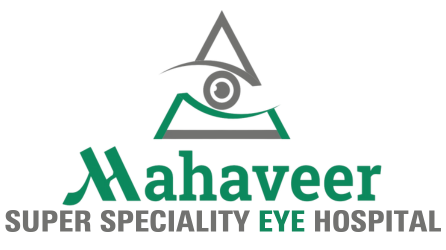पुण्यातील डॉक्टरांनी महाराष्ट्रातील पहिल्या AI-आधारित सर्पिल डिझाईन इन्ट्राओक्युलर...
Read MoreNearly 30% of individuals with diabetes in India are estimated to develop diabetic retinopathy at some point in their lives.
Nearly 30% of individuals with diabetes in India are estimated to develop diabetic retinopathy at some point in their lives.
Retinopathy is a major cause of vision impairment globally, affecting millions of people in India. It involves damage to the retina, often due to diabetes, leading to severe vision problems and potential blindness. It is the most common cause of vision loss in people with diabetes and significantly contributes to the global burden of blindness.

What Retinopathy Conditions Looks Like

Sudden Vision Loss

Floaters in Eye

Flashes in Vision

Lines appear Wavy
Causes and Symptoms
These disorders may stem from various underlying causes, including optic nerve damage, stroke, brain tumors, multiple sclerosis, and other neurological conditions affecting visual pathways.
Retinopathy is often caused by damage to the blood vessels of the retina, commonly linked to conditions like diabetes and hypertension. It can also result from premature birth, trauma, or prolonged exposure to certain medications.

Understanding the Triggers
- High blood sugar levels can damage blood vessels in the retina, leading to diabetic retinopathy.
- Chronic high blood pressure can cause damage to the retinal blood vessels, resulting in hypertensive retinopathy.
- Elevated cholesterol levels can contribute to the formation of blockages in the retinal blood vessels.
- Family history of retinal diseases can increase the likelihood of developing retinopathy.
- The natural aging process can lead to changes in the retina, making it more susceptible to retinopathy.

Hypertensive Retinopathy
Hypertensive retinopathy is a condition where high blood pressure causes damage to the blood vessels in the retina, the light-sensitive tissue at the back of the eye. This can lead to a range of vision problems and, if left untreated, can result in permanent vision loss.
Symptoms of Hypertensive Retinopathy
- Reduced Vision: Gradual loss of vision or sudden vision impairment.
- Double Vision: Experiencing double vision or seeing halos around lights.
- Headaches: Persistent headaches that accompany visual disturbances.
- Swelling: Swelling in the retina or optic nerve, which can be detected through an eye examination.
Common Symptoms
Blurred Vision
Experiencing a gradual or sudden blurring of vision can be an early symptom of retinopathy.
Dark or Empty Areas in Vision
If you notice dark or empty spots in your vision, it could be a symptom of retinopathy.
Seeing Color Changes
Changes in color vision, such as colors appearing washed out or different than usual
Sudden Vision Loss or Disturbances
Sudden decrease or loss of vision, transient vision loss, visual hallucinations, and sudden onset of difficulties in identifying colors or tolerating bright light can all be symptoms of neuro-ophthalmological disorders.
Double Vision and Eye Movement Abnormalities
Diplopia (double vision), abnormal eye movements such as nystagmus, and limitations in eye movement can indicate problems with the nerves and muscles controlling eye function.
Pupillary Abnormalities
Differences in pupil size (anisocoria), sluggish pupillary reactions, and other pupillary abnormalities can point to neuro-ophthalmological conditions affecting the nerves that control the pupils.
Headaches and Visual Field Defects
Intractable headaches and visual field defects, such as blind spots or tunnel vision, can be symptoms of neuro-ophthalmological disorders involving the optic nerve, optic chiasm, or visual pathways in the brain.
Despite challenges, advanced treatment options like intravitreal injections, laser therapy and vitrectomy are increasingly available in Indian hospitals, improving outcomes for retinopathy patients.
Despite challenges, advanced treatment options like intravitreal injections, laser therapy and vitrectomy are increasingly available in Indian hospitals, improving outcomes for retinopathy patients.
Intravitreal injections are a highly effective treatment option for retinopathy, specifically designed to deliver medication directly into the eye. This approach is used to manage various retinal conditions, including diabetic retinopathy and age-related macular degeneration. At Mahaveer Eye Hospital, our state-of-the-art diagnostic tools and expert ophthalmologists ensure accurate assessment and effective treatment plans for patients with retinopathy. Regular eye check-ups are crucial for early detection and management of this potentially sight-threatening condition.
Diagnosis of Keratoconus
Accurate diagnosis involves a comprehensive evaluation, including detailed neuro-ophthalmic examination, visual field testing, imaging studies (MRI or CT scan), and sometimes lumbar puncture to assess cerebrospinal fluid pressure.
-
Optic Nerve Sheath Fenestration
A surgical procedure that creates a small window in the optic nerve sheath to relieve pressure on the optic nerve.
-
Eye Muscle Surgery
Corrects misalignment of the eyes (strabismus) by adjusting the length or position of the eye muscles.
Advanced Treatment Options Offered at
Mahaveer Eye Hospital
Advanced Treatment Options Offered at
Mahaveer Eye Hospital
Treatment options vary based on the specific disorder but may include medications to manage underlying conditions, vision therapy, surgical interventions, and lifestyle adjustments. At Mahaveer Eye Hospital, we tailor treatment plans to each patient’s unique needs and goals.
FAQs
-
Who is at risk for retinopathy?
People with diabetes (diabetic retinopathy), high blood pressure (hypertensive retinopathy), or premature infants (retinopathy of prematurity) are at increased risk. Other risk factors include genetics, smoking, and prolonged use of certain medications.
-
What are the treatment options for retinopathy?
Treatment depends on the type and severity of retinopathy. Options may include lifestyle changes (such as controlling blood sugar or blood pressure), medications, laser therapy, or in advanced cases, surgical interventions like vitrectomy.
-
How is retinopathy diagnosed?
Diagnosis typically involves a comprehensive eye examination, including a dilated eye exam, to evaluate the retina for signs of damage or abnormalities in blood vessels.



